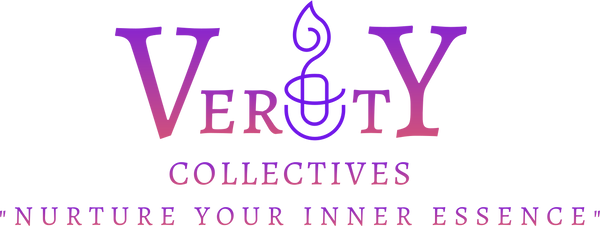
Why Being "Lazy" Might Be Your Smartest Move All Week
Share
Let's face it. In our go-go-go world, the word "lazy" often comes with a hefty side of guilt. We're constantly bombarded with messages about productivity, hustling, and optimizing every minute of our day. The thought of deliberately doing "nothing" can feel… well, wrong. Like we're falling behind, missing out, or just not trying hard enough.
But what if I told you that embracing a little bit of "laziness" could actually be the smartest thing you do all week? What if intentionally slowing down, stepping away, and giving yourself permission to simply be could unlock a more productive, creative, and happier you?
It sounds counterintuitive, right? Let's dive in.
The Myth of Constant Productivity
We've fallen into a trap where busyness equals worth. We wear our exhaustion like a badge of honor, constantly juggling tasks, commitments, and the relentless ding of notifications. The problem? Our brains aren't wired for this non-stop grind. Just like your phone needs to recharge, your mind and body require downtime to function optimally.
When you're always "on," you're actually hindering your performance. You're more prone to making mistakes, feeling overwhelmed, and burning out. Your creativity dwindles, your problem-solving skills suffer, and your overall well-being takes a hit. Sound familiar?
The Power of Intentional Idleness
This isn't about vegging out on the couch for days, neglecting responsibilities (though a good movie marathon has its place!). This is about strategic stillness. It's about recognizing that true rest is not a luxury; it's a necessity for peak performance and mental health.
Think of it like this: an athlete doesn't train 24/7. They incorporate rest days for recovery and growth. Similarly, your brain needs those "rest days" to process information, consolidate memories, and generate new ideas.
When you allow yourself to be "lazy" – whether it's staring out the window, taking a slow walk with no destination, or simply doing nothing for 15 minutes – incredible things can happen:
- Boosted Creativity: Ever notice how great ideas pop into your head in the shower or just before falling asleep? That's your brain making connections when it's not actively trying to solve a problem. Idleness gives your subconscious room to play.
- Improved Problem-Solving: Stepping away from a tough challenge can give you fresh perspective. When you return, solutions often appear clearer.
- Reduced Stress & Burnout: Regularly scheduled downtime helps lower cortisol levels, reducing stress and preventing the dreaded burnout.
- Better Focus & Productivity (Seriously!): When you're well-rested, you're more focused and efficient during your "on" periods. You get more done in less time, making your active hours truly productive.
- Enhanced Well-being: Simply put, it makes you happier. It reconnects you with yourself and what truly matters, reducing the feeling of constantly chasing your tail.
Tools for Your Smartly "Lazy" Time
You don't need fancy gadgets or expensive retreats to practice intentional idleness. Often, the best tools for truly slowing down are the simplest ones, designed to engage your senses without demanding your focus.
- A Cozy Blanket or Throw: There's something undeniably comforting about wrapping yourself in softness. A favorite blanket signals to your body and mind that it's time to settle in, providing a physical cue for relaxation.
- A Warm Mug (Tea, Decaf Coffee, or Herbal Infusion): The ritual of holding a warm mug, sipping slowly, and enjoying a comforting drink can be incredibly grounding. It forces you to slow your pace and engage in a simple, sensory experience.
- A Good Old-Fashioned Book (Paperback!): While e-readers are convenient, there's a unique magic to a physical book. The feel of the pages, the lack of notifications, and the dedicated focus it requires can be a powerful antidote to screen fatigue.
- Headphones (Even Without Music): Sometimes, the best way to "do nothing" is to block out external distractions. Pop on some noise-canceling or even regular headphones to create your own quiet bubble, allowing your thoughts to simply float without interruption.
- A Journal and Pen: This isn't about writing a magnum opus. It's about having a space to freely jot down thoughts, feelings, or even just doodle. Getting things out of your head and onto paper can be a huge stress reliever and a way to declutter your mental space.
- Essential Oils Diffuser (or a Scented Candle): Engaging your sense of smell with calming aromas like lavender, chamomile, or cedarwood can significantly impact your mood and promote a sense of peace. Just be mindful of personal sensitivities and pets.
- A Simple Sketchbook and Pencil/Pen: No artistic talent required! The act of drawing, doodling, or even just scribbling can be incredibly meditative and a wonderful way to let your mind wander without pressure.
How to Be "Lazily" Smart This Week
Ready to embrace your inner slacker (the smart kind, of course)? It's easier than you think.
- Schedule Nothing: Literally put "nothing" or "free time" on your calendar. Protect it fiercely.
- Disconnect: Turn off notifications. Put your phone in another room. Resist the urge to check email "just quickly."
- Embrace Boredom: Don't immediately reach for a screen when you have a spare moment. See what your mind does when it's not being entertained.
- Go for a Mindless Walk: No podcasts, no specific destination. Just walk and observe.
- Stare Out the Window: Seriously. Let your mind wander.
- Take a "Brain Break": Set a timer for 10-15 minutes and just sit, breathe, or doodle. Grab that cozy blanket and a warm drink.
It might feel awkward at first, especially if you're used to constant motion. But think of it as a crucial investment in your most valuable asset: yourself. So go ahead, be a little "lazy" this week. Your brain, your body, and your future self will thank you for it.


